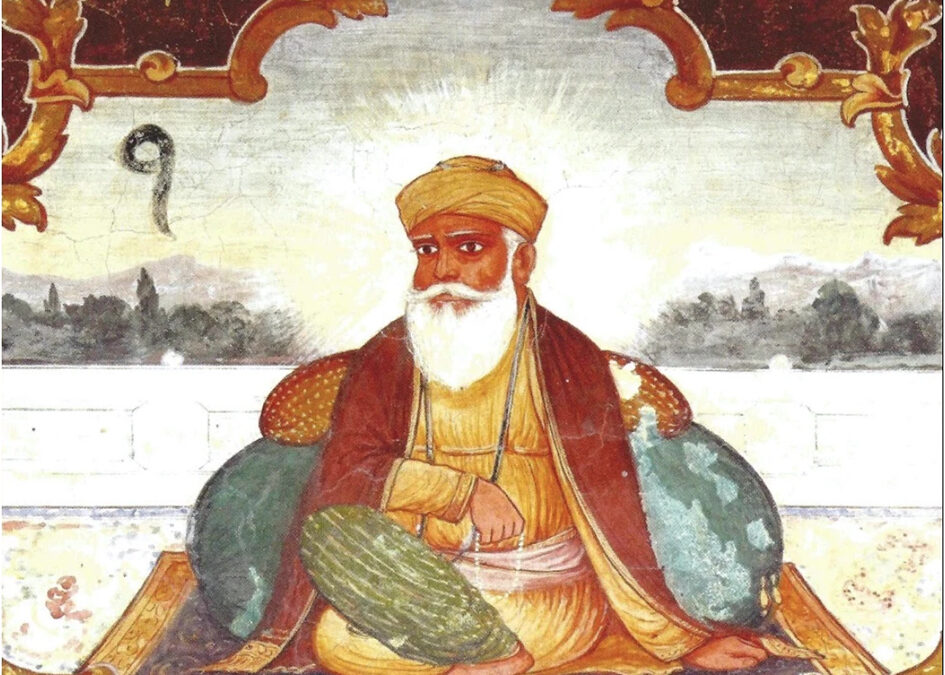by Dawn King • We are always delighted to learn about the life of another great, illumined person from earlier times. Today I’m writing about Guru Nanak who became a spiritual teacher (“guru”) during his extraordinary life. With deep devotion (bhakti) to Truth, he equated God with the ultimate Truth, and he saw all people as bearers of Divine Light.
Born in what we call Pakistan today—but in the 1400s and 1500s—Nanak refused to favor a sex (male or female), religion (Hindu or Muslim), or one caste over another. Women were not given equal status with men at this time. His attitudes shocked his contemporaries also because competing religions and the caste system were firmly established in that era. Followers of Hindu and Muslim faiths were in constant conflict; something Nanak continually tried somewhat to reconcile.
Stories of Nanak’s early childhood state that as a sleeping child he was shaded from the hot sun by a venomous cobra’s hood, or a magically moving tree. While 7 years of age, upon learning the first letter of the alphabet, he associated it with the number “one”, and described it as a symbol of unity and the one God within all. Like Jesus, at a young age the precocious Nanak debated with both Hindu and Muslim religious scholars about the nature of God.
He is quoted as saying: “There is but One God. His name is Truth. He is the Creator. He fears none; he is without hate, He never dies. He is beyond the cycle of births and death. He is self illuminated.… He was True in the beginning…. He is also True now.”
Another saying attributed to him: “Even Kings and emperors with heaps of wealth and vast dominion cannot compare with an ant filled with the love of God.” He was attributed as hearing the “word” of God, a divine guiding sound.
Revelations from God inspired Nanaks’ teachings. Popular tradition offers ways in which his teaching may be practiced:
1. Be of service to others. [“Share with others, help those who are in need, so you may eat together.”]
2. Earn an honest living, without exploitation or fraud. Daily life offers opportunities to serve.
3. Meditate on God’s name, in order to feel His presence, and to control the five vices or thieves of the human personality. The “thieves” steal one’s common sense: lust, wrath, greed, attachment and excessive pride, or ego.
4. Maintain connection to the Divine in your heart with every breath.
Nanak travelled extensively during his life, exploring religious practices in many areas far from his home, and offering his own views on the Truth. Consequently, he made an impression, and is celebrated in Sri Lanka, Tibet, Nepal, Iraq, Russia, and China.
My favorite story about Guru Nanak is that about his passing from this world. Both Hindus and Muslims wanted to claim him as their saint. When representatives of both religions showed up to claim his body, the shroud was removed to reveal a heap of flowers. Each group was able to take flowers and treat them as they would their revered saint’s body.
Today we have the Sikh faith, all followers of their original saint, Guru Nanak. Sikh means “seeker of truth,” meaning the divine Truth within.

